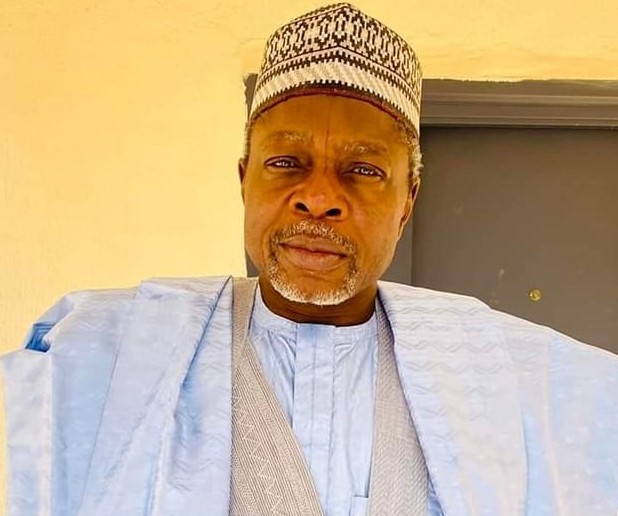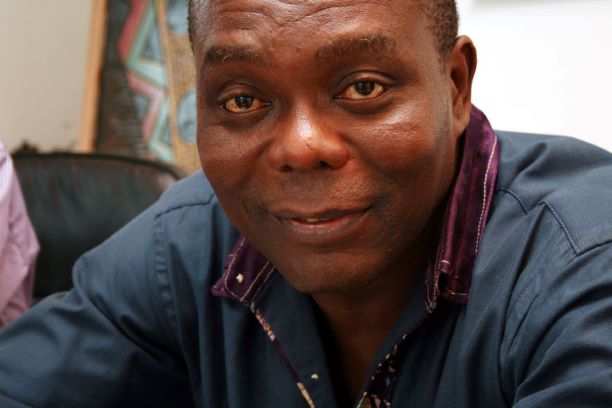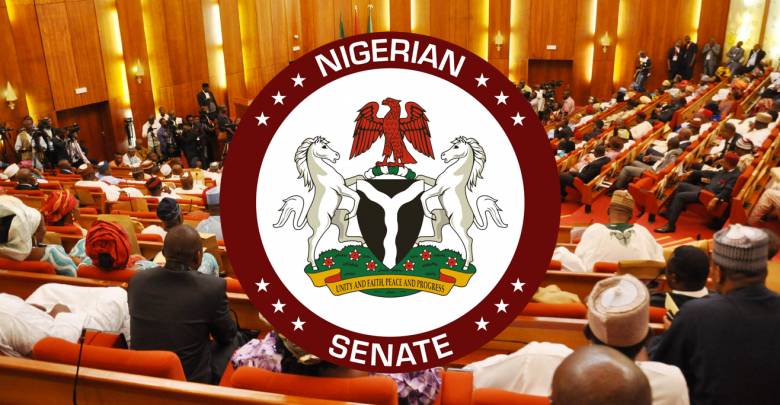Musings on Neptune Prime’s Maiden Colloquium
Photo above: Hassan Gimba, Neptune Neptune Prime Publisher
By Mahdi Garba
Nigeria has been ridden with different crises like other countries in the Global South. From insecurity, to lack of infrastructure, to corruption, to bad governance, to poor healthcare systems and so on. I feel disturbed by these problems every day, and I feel glad any time I become part of any conversation to change this narrative.
Last Wednesday, I had the same feeling when I found my humble self at a function organised by Malam Hassan Gimba and his baby venture, Neptune Prime, at Ladi Kwali Hall, Sheraton Hotel, Abuja. It was one gathering too many. Journalists, policymakers, politicians, academics, philanthropists and ace administrators graced the event that started with a lecture on cervical cancer, the threats it poses to entire humanity and how to combat it.
Lami Fatima Babare, Gimba’s wife, died of the deadly disease on the 6th of March, 2018 after she was diagnosed in 2017. She was not just a mother to his sons and daughters but a pillar that supported his visions and stood by him at all times while she was alive. She left this sinful world at the age when she was needed the most like all mortals. Hence, his reason to start a foundation that will create awareness on the menace and confront it.
A part of the event was the launch of the Lami Fatima Babare Cervical Cancer Awareness Foundation (LFBCCAF), then the award ceremony and the launch of The Arbiter, a compendium of Dr Gimba’s insightful renditions on politics, society, security and current affairs that were published in his column in Blueprint, Neptune Prime and other national newspapers.
The guest speaker, Dr Ali Adamu Tikau, an international development consultant, did not disappoint. The man of letters who is known for his oratory gift and wide knowledge delivered a paper entitled, ‘Hurdles, Splinters and Snags: The Political Economy of Grassroots Mobilisation in the Fight Against Cancer’.
In his instructive speech, and Dr Adamu did justice to the topic by taking the audience through the journey of the role of ‘Big Pharma’ in selfishly monetizing life-threatening diseases like cancer, diabetes and hypertension. He said the likes of Novartis, Johnson & Johnson, GlaxoSmithKline, Pfizer, etc., or what we call the big pharma, are yet to invent cures for these plagues, only drugs that ameliorate them.
As conspiratorial as it may sound, I find it riveting owing to the fact that I recently worked on a long investigative piece for a German media outlet, UnbiasTheNews, on vaccine hesitancy in Nigeria. I interviewed victims of the Kano Pfizer drug scandal that erupted in 1996 following a botched trial that led to loss of lives and loss of some parts for others. After meeting these victims, one would have to believe that Big Pharma is not the benevolent entity it tries to portray itself. Having this background knowledge made me share the same viewpoint with Dr Adamu.
The climax of his presentation was the importance of public trust in all this saga. The government must earn the trust of the public. Taking us through memory lane, he said in pre-oil boom Nigeria, cattle herders were eager to pay cattle tax, what was then known as jangali, because they had the firm belief that vaccines would be freely administered to them by the government.
On the indispensable significance of trust, he spoke on how it will help even in the war against diseases like malaria. If citizens, according to him, share the sentiment that if they pay tax, the government will fumigate towns and cities which will extremely reduce malaria, they will pay without hesitation. And I strongly with him.
On her part, a co-wife of the late Lami, Dr Amina Zakari, who is also the head of the foundation, said it’s imperative to create a platform like LFBCCAF considering the growing number of cancer patients in the country. As the second most common cancer among women in the country, as of 2020, Nigeria accounted for 10,403 deaths of its patients that year alone, with about 28 deaths every day.
Mrs Betty Akeredolu, wife of the governor of Ondo State, a survivor and advocate of breast cancer eradication, through her representative, Dr Stephen, canvassed for the inclusion of the Human Papillomavirus Virus (HPV) vaccination in the national routine immunisation schedule. Interestingly, all the speakers drummed support for the foundation that, according to its founders, is brought about to help women, their families, communities and caregivers battle the personal issues related to cervical cancer by developing programmes and working with like-minded organisations. In addition, it has a vision to build a Nigerian society by 2030 where cervical cancer will not be a death sentence anymore. and a country that will be cervical cancer-free by 2050. Another important point all speakers underscored its magnitude was that early diagnosis will go a long way in ebbing the cancerous disease.
The incorporation of Neptune Prime’s award ceremony added colour to the event. Nigeria’s exceptional illustrious sons were honoured for works they altruistically did in areas of governance, security, health, media, etc. Less than a decade after the birth of the publication, I feel elated seeing Dr Hassan Gimba travel this far. In a few years, he has made giant strides that many publishers cannot equate with him.
Comments of guests like Prof Elias Bogoro, immediate past executive secretary of Tertiary Education Trust Fund (TETFUND) and former editor of Leadership and deputy president of the Nigerian Guild of Editors (NGE), Suleiman Uba Gaya, amongst other participants, will make one agree that coming together is a beginning; keeping together is a progress; working together is success.
Commendably, few years after he left Leadership and became a publisher, Neptune Prime has become one of the most respected media platforms in the entire North, not to talk of the North-eastern region, its area of focus. Today, it boasts an online medium, a magazine and a television channel. This is why I say the paper and its publisher deserve accolades for making possible what looks otherwise.
Mahdi Garba is a freelance journalist and can be reached at [email protected]



